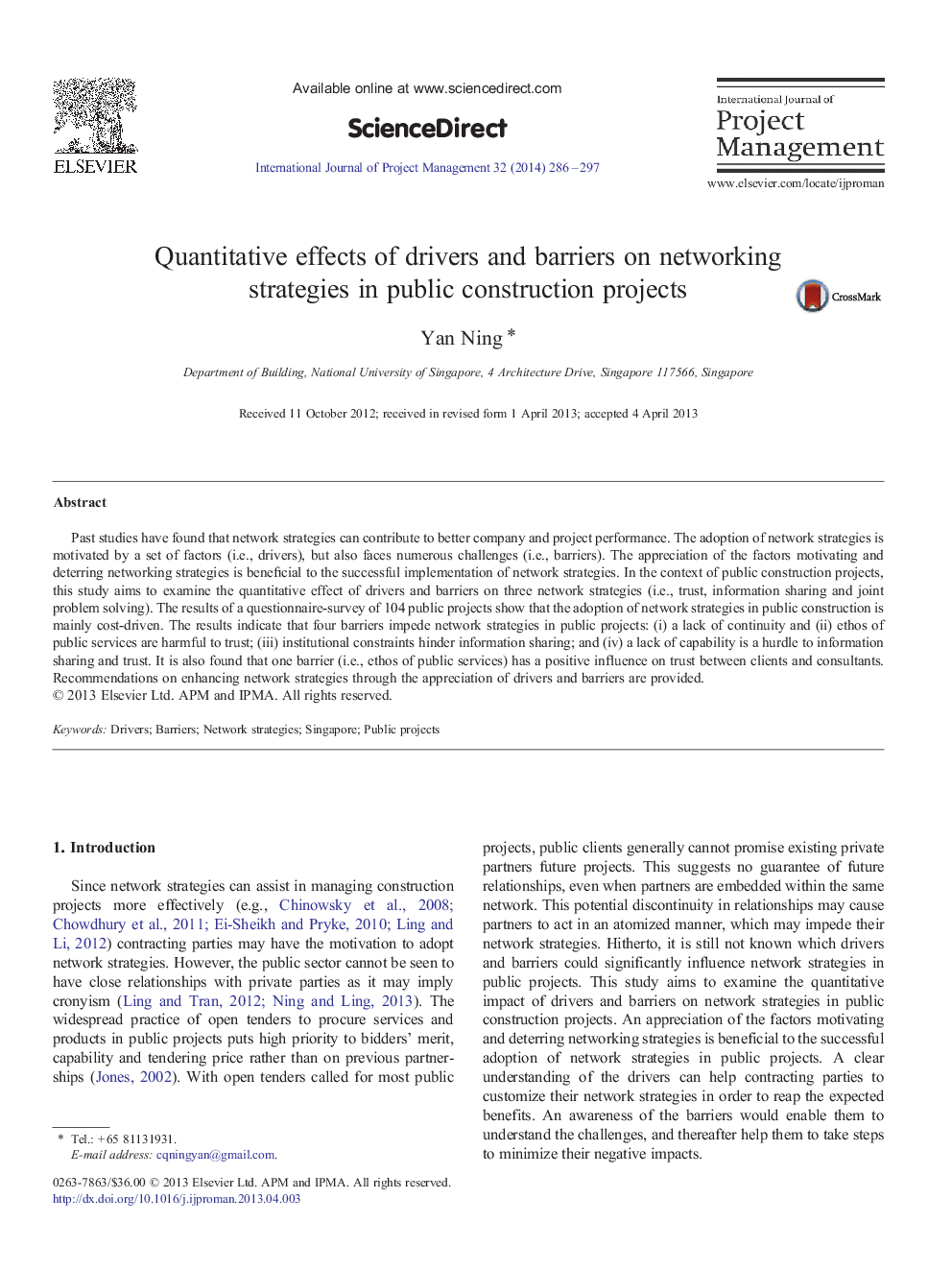| Article ID | Journal | Published Year | Pages | File Type |
|---|---|---|---|---|
| 275889 | International Journal of Project Management | 2014 | 12 Pages |
•Adoption of network strategies in public construction is mainly cost-driven.•A lack of continuity and ethos of public services are harmful to trust.•Institutional constraints hinder information sharing.•A lack of capability is a hurdle to information sharing and trust.•Ethos of public services positively influences trust between clients and consultants.
Past studies have found that network strategies can contribute to better company and project performance. The adoption of network strategies is motivated by a set of factors (i.e., drivers), but also faces numerous challenges (i.e., barriers). The appreciation of the factors motivating and deterring networking strategies is beneficial to the successful implementation of network strategies. In the context of public construction projects, this study aims to examine the quantitative effect of drivers and barriers on three network strategies (i.e., trust, information sharing and joint problem solving). The results of a questionnaire-survey of 104 public projects show that the adoption of network strategies in public construction is mainly cost-driven. The results indicate that four barriers impede network strategies in public projects: (i) a lack of continuity and (ii) ethos of public services are harmful to trust; (iii) institutional constraints hinder information sharing; and (iv) a lack of capability is a hurdle to information sharing and trust. It is also found that one barrier (i.e., ethos of public services) has a positive influence on trust between clients and consultants. Recommendations on enhancing network strategies through the appreciation of drivers and barriers are provided.
